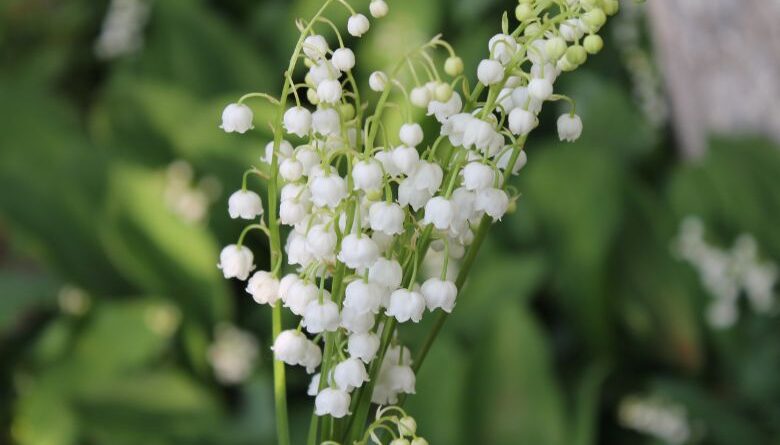The Joy of Gardening: Cultivating Beauty and Serenity
The Joy of Gardening: Cultivating Beauty and Serenity
Gardening, often considered a labor of love, goes beyond being just a hobby or a way to beautify our surroundings. It’s an immersive experience that offers numerous physical, mental, and emotional benefits, nurturing not only the plants but also our souls. Whether you have a sprawling backyard or a small balcony, creating and maintaining a garden can bring immense joy and a sense of fulfillment to your life.
1. Introduction
In this article, we will delve into the various aspects that make gardening a source of joy and tranquility for countless individuals across the world. From its therapeutic effects on mental well-being to the satisfaction of growing your own food, gardening offers a myriad of rewards. Let’s explore how getting your hands dirty can lead to a healthier and happier life.
2. The Therapeutic Power of Gardening
2.1. Gardening as Stress Relief
Amid the hustle and bustle of modern life, finding moments of peace can be challenging. Gardening provides an escape from daily stressors and allows us to reconnect with nature. The act of tending to plants, nurturing them, and witnessing their growth can have a calming effect, reducing cortisol levels and promoting relaxation.
2.2. Gardening and Mental Well-being
Studies have shown that gardening has a positive impact on mental health. Engaging in this outdoor activity encourages mindfulness and fosters a sense of purpose. The interaction with soil and plants triggers the release of serotonin, the “happy hormone,” leading to improved mood and a reduced risk of depression.
3. The Beauty of Nature at Home
3.1. Creating a Picturesque Garden
A well-designed garden adds aesthetic appeal to your home and creates a welcoming environment for family and guests alike. With careful planning and attention to detail, you can transform your outdoor space into a stunning oasis.
3.2. Choosing the Right Plants and Flowers
Selecting the right plants and flowers is crucial to the success of your garden. Understanding your local climate, soil type, and sunlight conditions can help you make informed choices, ensuring a flourishing garden.
3.3. Enhancing the Landscape with Hardscaping
Incorporating hardscaping elements, such as pathways, pergolas, and water features, can elevate the beauty of your garden. These structures not only complement the plants but also add a touch of sophistication to the overall design.
4. Growing Your Own Food
4.1. Benefits of Homegrown Produce
Growing your own food comes with a host of benefits. Besides the freshness and superior taste, it allows you to control the use of pesticides and chemicals, promoting a healthier lifestyle.
4.2. Starting a Kitchen Garden
You don’t need vast acres of land to start a kitchen garden. With some basic pots or a small patch of soil, you can cultivate herbs, vegetables, and fruits right in your backyard, ensuring a continuous supply of organic delights.
5. The Joy of Nurturing and Growth
5.1. Cultivating Plants from Seeds
There’s something magical about starting with a tiny seed and witnessing it develop into a full-grown plant. The process of sowing, nurturing, and witnessing growth fosters a sense of responsibility and achievement.
5.2. Caring for Your Garden Throughout Seasons
A thriving garden requires year-round care. Understanding the specific needs of your plants during different seasons ensures that your garden remains vibrant and lively throughout the year.
6. Gardening for Wildlife
6.1. Attracting Birds and Butterflies
Gardens can become havens for wildlife, attracting colorful birds and butterflies. Creating a welcoming space for these creatures adds a new dimension of joy to your gardening experience.
6.2. Supporting Local Ecosystems
By choosing native plants and providing food and shelter for local wildlife, you contribute to the preservation of your region’s ecosystem, making a positive impact on the environment.
7. Gardening as a Social Activity
7.1. Community Gardens
Joining a community garden opens up opportunities to connect with like-minded individuals, fostering a sense of camaraderie and a shared passion for gardening.
7.2. Gardening Clubs and Events
Gardening clubs and events provide platforms for learning and exchanging ideas. These gatherings enable gardeners to expand their knowledge and grow their skills while making new friends.
8. Sustainability in Gardening
8.1. Environmentally Friendly Practices
Gardening can be environmentally friendly by adopting practices such as rainwater harvesting, using organic fertilizers, and practicing integrated pest management.
8.2. Composting and Recycling
Composting kitchen waste and garden clippings not only reduces waste but also enriches the soil, promoting healthier plant growth.
9. Gardening Tips and Tricks
9.1. Dealing with Common Garden Issues
Encountering challenges is part of gardening. Understanding how to tackle common issues like pests, diseases, and soil problems ensures that your garden remains resilient and thriving.
9.2. Time-Saving Techniques
For busy individuals, gardening can still be enjoyable with time-saving techniques like mulching, efficient watering systems, and smart planning.
10. Embracing Gardening as a Lifestyle
Gardening is not just a hobby; it can become a way of life. Embracing its principles and values can lead to a deeper connection with nature and a more sustainable and fulfilling existence.
11. Conclusion
In conclusion, the joy of gardening extends far beyond the boundaries of soil and plants. It enriches our lives in profound ways, providing us with therapeutic benefits, enhancing the beauty of our surroundings, and offering a profound sense of achievement. So, whether you’re an experienced gardener or a beginner with a curious soul, grab a shovel, sow some seeds, and embark on a journey of cultivating beauty and serenity.
FAQs
- Is gardening only for those with large outdoor spaces? Not at all! Gardening can be enjoyed in various settings, including small balconies, indoor spaces, and even vertical gardens.
- How can I attract pollinators to my garden? Planting nectar-rich flowers and providing water sources can attract bees, butterflies, and other pollinators.
- Can gardening help me stay physically active? Yes, gardening involves physical activities like digging, weeding, and planting, which can contribute to a healthy lifestyle.
- What are some easy-to-grow plants for beginners? Herbs like basil, mint, and rosemary, as well as flowers like marigolds and zinnias, are great choices for beginners.
- How can I ensure my garden remains sustainable? Embrace eco-friendly practices like composting, using natural fertilizers, and reducing water wastage to maintain a sustainable garden.
- Mindful Parenting: Nurturing Resilient and Empathetic Children
- Morning Rituals: Starting Your Day with Intention and Positivity




